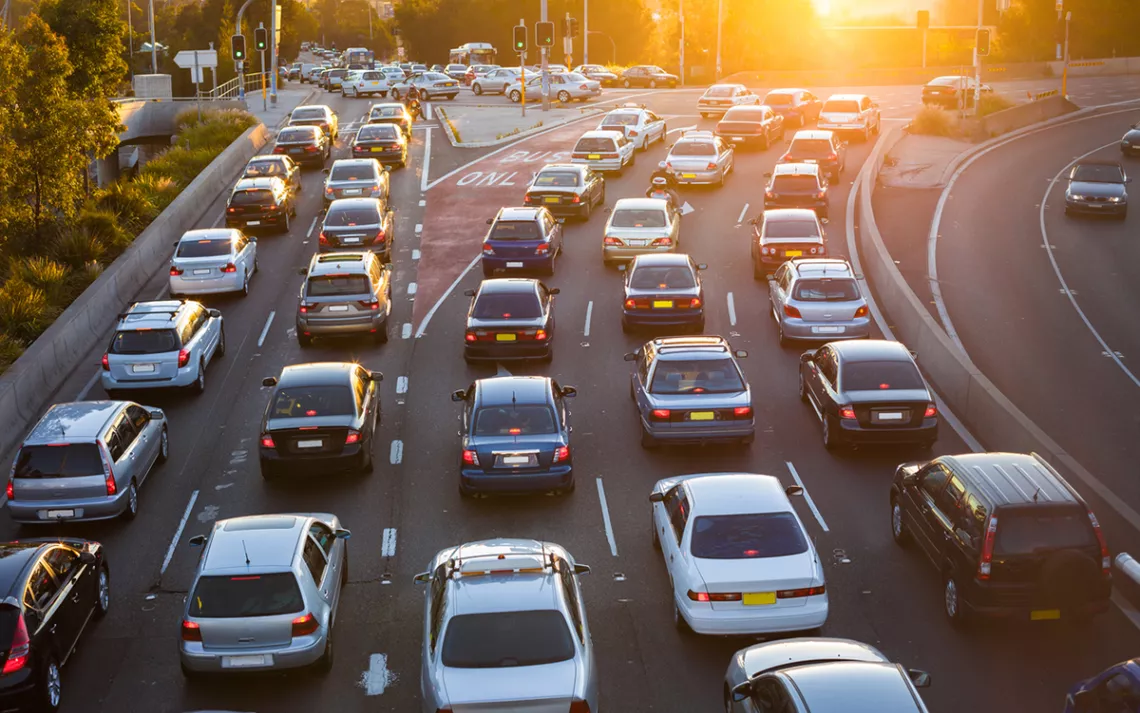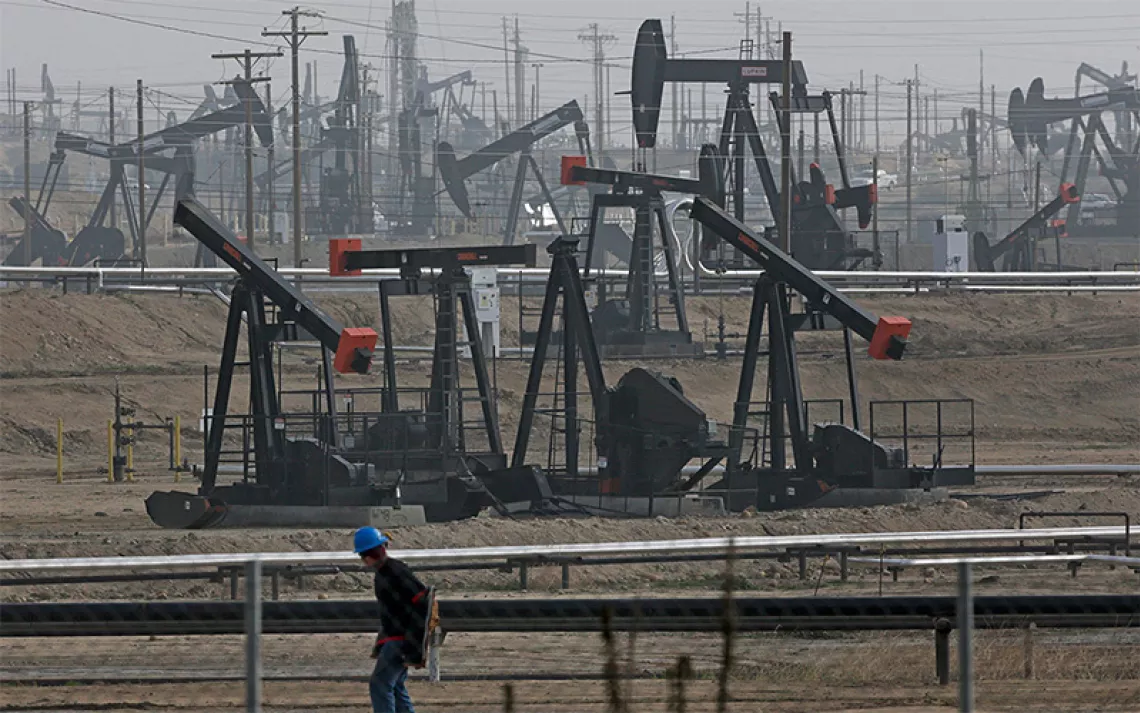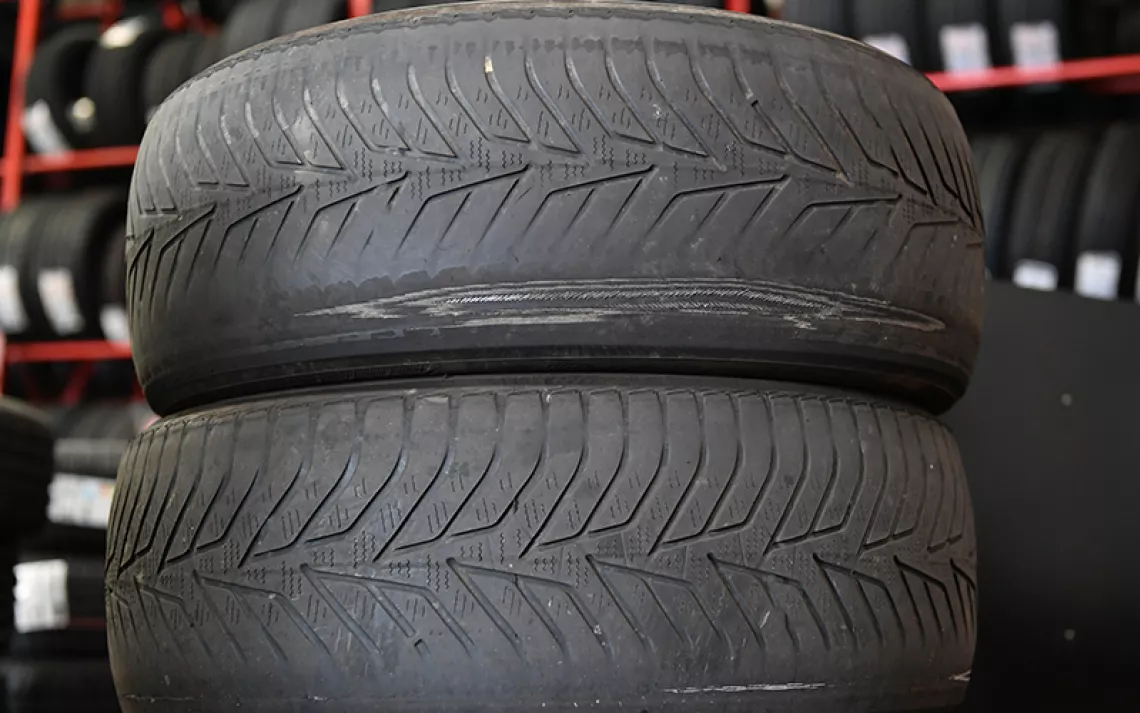Big Auto Conspires With Scott Pruitt to Roll Back Tailpipe Standards
EPA head is expected to loosen fuel-economy rules

Photo by XXLPhoto/iStock
This weekend, motorheads are converging on the Javitz Center in Manhattan for the New York Auto Show, one of the industry’s marquee events where automakers trumpet their newest models. At this year’s show there’s a lot of buzz about electric vehicles, hybrids, and plug-in hybrids: Toyota is rolling out a newly designed hybrid RAV4, Hyundai is excited about its new Kona EV with a range comparable to Tesla models', BMW is unveiling a “classic” Mini electric, and Ford’s luxury Lincoln brand is talking up its plug-in hybrid, Aviator. At the same time, the Alliance of Automobile Manufacturers, the industry’s primary trade group, is launching a million-dollar advertising campaign (complete with a snazzy website) about how electric vehicles “drive change.”
Meanwhile, in Washington, D.C., the auto industry is working behind the scenes with EPA administrator Scott Pruitt to roll back the Obama-era rules to increase fuel economy and spreading misinformation about the science of human-driven climate change. Publicizing EVs while also maneuvering to water down fuel efficiency? It’s a move so brazen and so bold that it makes you nostalgic for corporate greenwashing.
These contortions come out of a 2012 agreement between industry and the federal government to boost corporate average fuel economy—"CAFE" in policy-wonk speak—to 54.5 miles per gallon by 2025 (roughly 36 mpg in real-world driving). It was one of the signature environmental accomplishments of the Obama administration, since greenhouse gas emissions from cars and trucks now eclipse emissions from power plants as the number one source of U.S. carbon pollution. Simply put, there is no way the United States can significantly ratchet down its carbon emissions without tackling fuel economy.
“These [fuel economy] rules are the single biggest step any single nation has taken to tackle global warming and reduce oil use,” says Dan Becker, director of the Safe Climate Campaign and an expert on U.S. auto policy.
EPA administrator Pruitt is expected to appear at a Northern Virginia auto dealership on Tuesday, April 3, to announce that the agency has determined that the Obama-era standards are “not appropriate”—the first step toward eventually scrapping them. EPA officials have been reluctant to disclose how far they plan to go in loosening the efficiency requirements. They say they’ll likely roll out specific proposals in May or June. But the Trump administration isn't waiting. On March 28, the Department of Transportation announced its intention to dump the civil penalties that car makers have to pay for not meeting mandated fuel standards—a move that essentially removes any incentive for auto companies to meet the Obama-era rules.
Environmental watchdogs say that whatever the EPA ultimately announces, it will set back efforts to address climate change and the public health impacts of car and truck emissions. If left alone, the higher standards would help avoid 280 million metric tons of CO2 by 2030—the equivalent of removing some 59 million vehicles from the road. They would also save car drivers an estimated $3,200 in fuel costs over the lifetime of their vehicles and reduce the kind of air pollution that exacerbates lung diseases like asthma. “We already need to be doing more than what is in place, so doing less just puts us behind the curve,” says Dave Cooke, the senior vehicles analyst at the Union of Concerned Scientists.
For much of the 1990s and early 2000s, environmental organizations like the Sierra Club fought unsuccessfully for an increase in fuel-economy standards. Despite all sorts of corporate accountability campaigns and a sophisticated inside-outside strategy on Capitol Hill, green groups couldn’t overcome the political might of Detroit. Then the Great Recession hit and U.S. automakers found themselves on the verge of bankruptcy. In 2009, the Obama White House and Congress engineered a historic, $80 billion taxpayer-funded bailout of the struggling industry. The money came with a crucial condition: The automakers would have to agree to raising the fuel economy of their cars and trucks.
It turned out that the car companies’ commitment to efficiency was always shallow. On the day after Donald Trump’s election, the Alliance of Automobile Manufacturers wrote a letter to the president-elect asking for a review of the new emissions standards, which they described as a “substantial challenge.” Within weeks of Trump’s inauguration, the heads of the Big Three American automakers met with the president in the Oval Office to complain that the Obama standards weren’t feasible. In recent filings with the National Highway Traffic Safety Administration (which shares responsibility with the EPA for regulating the auto industry), the Alliance of Automobile Manufacturers went so far as to cast doubt on scientists’ consensus that human activities are driving global warming, using cherry-picked quotations. The author of one of the articles submitted to NHTSA, Paul Voosen of Science, told the New York Times that the quotes from his work “are selective and do not accurately represent the entirety of the news story.”
Even as the automakers have lobbied behind the scenes to water down the tailpipe rules, they have sought to project a public image of being in support of higher standards. In a March 27 commentary on Medium, Ford Motor Company chairman Bill Ford wrote, “We support increasing clean car standards through 2025 and are not asking for a rollback. We want one set of standards nationally, along with additional flexibility to help us provide more affordable options for our customers.”
Environmental groups say that Ford’s statements are little more than double-speak. “This is something we have seen for decades from the auto industry: publicly calling for action on climate change and privately, behind the scenes, undermining policies on fuel-economy standards and air pollution,” the UCS’s Cooke says. “When it comes to ‘flexibilities,’ what they mean are things that may or may not lead to real-world emissions reductions but give them credit. ‘Flexibility’ is another way of undermining emissions reductions.”
According to Becker, Ford's commentary may also be a way for the company to distance itself from the toxic Trump administration and scandal-plagued EPA administrator Pruitt, whose anti-environment ideology may be too much even for the automakers. “The fact that they are trying to distinguish themselves from what Trump and Pruitt are doing shows that they don’t want to bear the blame,” Becker says. According to a poll conducted by the American Lung Association, seven in 10 U.S. voters want the EPA to leave the current fuel-economy standards in place.
While Pruitt’s attempt to scale back the fuel-efficiency rules is an undeniable threat to meaningful action on climate change, it’s not the end of the saga. There’s another major U.S. governmental body with a large stake in the process: California. The Golden State enjoys a waiver under the Clean Air Act that allows it to set car standards that are higher than the federal rules, and California officials have announced that they will exercise their right to do so. “We’re going to do everything we need to defend that process,” California attorney general Xavier Becerra told the New York Times.
The Clean Air Act also permits other states to follow California’s lead, and historically 12 other states have done so. Together, those 13 states represent one-third of the U.S. auto market. Which means the auto industry is facing the unwelcome prospect of building cars to suit two different sets of fuel-economy standards—that, or a lengthy, business-disrupting legal standoff as the Feds and California fight out the issue in courts.
“The auto companies don’t want a war with California,” Becker says. “What they want to do is lever California into weaker standards, but it’s not clear whether Pruitt and Trump want to play that game.”
At the very least, this much is certain: Nationwide progress on improving car and truck efficiency will be in limbo for the foreseeable future. Becker says, “All of this is a signal to the automakers: Start your gas-guzzlers, as opposed to moving forward to a new generation of technology that leads us to the future. This takes us back to the 1950s.”
 The Magazine of The Sierra Club
The Magazine of The Sierra Club



